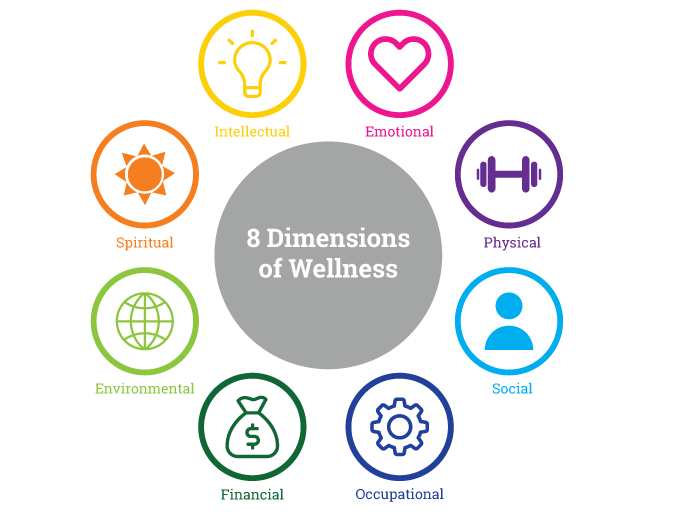Time to Re-Think and Re-Define WHOs original definition of Health: A Conceptual Framework
- Nina Arboine

- Oct 13, 2020
- 7 min read
Updated: Oct 24, 2020
Life expectancy has slowly and steadily increased during the course of the 20th century and into the 21st century resulting in a change in the concept of health for both individuals and society. Back on April 7, 1948, The Constitution of the World Health Organization, defined health “as a state of complete physical, mental and social well-being and not merely the absence of disease or infirmity (McCartney, Popham, McMaster & Cumbers, 2019). Since than, critics have argued that WHOs definition of health has become obsolete within today’s modern healthcare system; thus requiring to re-think and re-define a new conceptualize framework for defining health. According to Jambores et al 2015 article, Huber et al, had challenged the WHO definition of health with the introduction of a new concept of health as ‘the ability to adapt and to self-manage, in the face of social, physical and emotional challenges.’ As outlined in Jambores et al 2015 article, the definition of WHOs health had been criticized based on patterns of population morbidity have evolved since 1948 and individuals are living with one or more chronic diseases. The new concept acknowledges that people can be defined as ‘healthy’ while living longer with a chronic disease.
“Health cannot stand alone, it needs to branch out on its own before becoming whole”
As culture changes over time, it is also true that perception of health will also transition. As discussed in Sturmberg (2014) article, he articulated in how previous work exposed many different definitions of health that highlights subjective and functional aspects as well as systemic dimensions of interconnected and interdependent. Sturmberg (2014) discusses the work of Bircher and Kuruvilla who had taken account of the multifaceted nature of health, and rightly emphasized the “complex adaptive nature of health resulting from interactions of ‘personal’ and ‘acquired potentials’ and the ‘demands of life’ “ - an existential proposition for the survival of its kind. Bircher and Kurubilla allude to three imperative concepts regarding health which included “context, interdependence and emergence” (Sturmberg, 2014). Health requires continuous reconstitution of the two potentials and the demands of life, that is health is an emergent phenomenon. As shown, emergence leads to outcomes that display new properties that are lacking in or certain from understanding the properties of the interacting components; as well, the initial conditions at the start of the process explain the deterministic behaviour resulting from such interactions. Although adaptation indeed is a process to meet the changing, that is, emerging demands of life, the outcomes of this adaptation; the health of the person
cannot be precisely depicted The basic proposition that health is the emergent product of a dynamic nonlinear interaction between the “ biological potentials, acquired potentials and the demands of life (Sturmberg,2014)” is a useful model to conceptualize the nature of health. Despite these critical remarks, Bircher and Kuruvilla’s work is crucial as it aims to find a definition of health that can be pragmatically implemented in practice settings. It is a time to acknowledge the subjective nature of health and disease and distinguish it from the biomedical notion of discrete visualize changes (Sturmberg, 2014).
Disease and the state of feeling healthy are no longer mutually exclusive, especially with the older population. Health as the absence of disease eliminates those with chronic diseases and are now managing their disease in a new way. Managing disease has become the norm. According to Fallon & Karlawish (2019) nearly two-thirds for those over the age of 65 and three-quarters for those over the age of 85 are managing with two or more chronic diseases, and describe their state as health as being excellent due to proper management of disease and regular check up with their physician. Fallon and Karlawish (2019) acknowledges that special consideration in both health and human rights framework needs to incorporated for defining health. The expansion of health to encompass aspects of disease to include managing multiple diseases, maximizing function, optimizing medication regimens, prioritizing different health risk and outcomes and preparing for end-of-life considerations are some of the areas that deserve to be included in basic definitions of health. In Fallon and Karlaish (2019) article they eloquently stated ”The expansion of health to include aspects of disease management is not an excuse for a failing health care system - one that accepts the presence of disease without seeking to minimize and manage it, or one that fails to address suffering through evidence-based practice.”
Re-defining health will allow more people across different segments of the course of life, will give everyone, including the older population a chance to be healthy.
In the textbook Sociology: Understanding and Changing the Social World, Comprehensive Edition by Barkan (2011) under Chapter 18 Understanding Health, Medicine, and Society, he examines health from a sociological approach in how society's culture shapes it’s understanding of health. The major sociological perspectives examines health in three different approaches.
The Functionalist Approach
Good health and effective medical care is essential for a society to function;
Ill health impairs our ability to perform in society, and if too many people are unhealthy, society's functioning and stability suffer;
Poor medical care is dysfunctional for society, as individuals who face greater difficulty in becoming health and individuals who are healthy are more likely to become ill.
Critics of the functionalist approach agree on the importance of good health for society’s health, however found a great many of flaws to this theory. First and foremost, the concept that illness applied more to acute than to chronic and state of health can regenerated to a healthy stated in the acute phase, but not in the chronic phase. Secondly, people need to reduce the hierarchy physician-patient relationship and to ask imperative health question and to seek more of and active role in maintaining their health. Lastly, social class, race and ethnicity and gender does not always affect the likelihood of becoming ill.
The Conflict Approach
Emphasizes inequality in the quality of health and of health-care delivery;
Society’s inequalities along social class, race and ethnicity, gender. People from disadvantaged social backgrounds are more likely to become ill, and one they do become ill, inadequate healthcare makes it more difficult for them to become well.
Critics of the conflict approach acknowledge that there has been headway in great improvements of health across the nation and even in the third world nations, moreover, health has gain strides from a century ago, however, it still remains inadequate today and requires more of an effort for improvements.
The Interactionist Approach
Emphasizes that health and illness are social constructions;
Various physical and mental conditions have little to no objective reality, however are considered healthy or ill conditions only if they are defined as such by society and its members.
Critics of the interactionist approach imply that no illnesses have objective reality. They neglect the effects of social inequality for health and illness. Moreover, chronic illness co-exits amongst society and that health and illness actually do have a subjective as well as an objective reality.
After review the sociological perspective of understanding health based on the three approaches discussed above, there are many gaps to their theory about health that are crucial for the consideration of defining health. Health cannot be sole examined from a macro-level, but it is essential to view health from a micro-level and to encompass all theorist perspectives to have a better understanding and to better create a conceptualized framework of defying health.
Wellness necessitates good self-stewardship for ourselves and for those we care about and care about us. It is a lifestyle, a personalized approach to living life in a way that allows f you to become the best kind of person that your potentials, circumstances and fate will allow. As apart of health, wellness encompasses eight mutually interdependent dimensions: physical, intellectual, emotional, social, spiritual, vocational, financial and environmental. Attention must be given to all the dimensions, as neglect of any one over time will adversely affect the others, and ultimately one's health, wellbeing and quality of life (Stoewen, 2017).
If we ask someone about their state of wellbeing, we may find that the person feels well and healthy. And yet, despite this satisfactory subjective picture, our person may well harbour serious diseases in nature. The Theory of Health (Tengland, 2007) has a two-demential theory. First, health is to have develop the abilities and dispositions that members of one’s culture typically develop, and be able to use them in acceptable circumstances; and the second, health is to experience positive moods and sensations, the kinds that have internal causes. This is further broken down into differentiates four different monistic kinds of theory to define health.These include 1) health as a functional normality, 2) health as balance, 3) health as ability (holistic), and 4) health as (subjective) wellbeing (Tengland, 2007). Tengland (2007) takes it further and elaborates on a number of criteria must be taken into account when discussing a definition of health. These criteria include:
Language criterion: should not differ too much from our ordinary use of the concept;
Value criterion: should capture the positive value tat the concepts health has;
Goal criterion: the definition should make the goals of the healthcare sector;
Theory criterion: preferable if the concept is presented as a conceptual theory or principle which can help us explain why they belong there;
Homogeneity criterion: it is preferable if health is defined in terms of a homogenous category;
Reliability criterion: it is better if the definition is stated in observable terms, rather than in unobservable ones;
Measurement criterion:it is related to the previous criterion, and claims that is preferable if the defining characteristics are measurable to some extent;
Precision criterion: the definition should be sated in precise and well-known terms;
Simplicity criterion: the fewer exceptions or additions there are to the definition, the better (Tenglang, 2007).
It is possible to accommodate all of these criteria at the same time because many of them overlap with each other.
Health is quiet complex in nature. To be able to re-define health, we need to look at all angles of what defines health in todays society. With much research and breaking the concept of health down, one can better improve the original definition of health from WHO.
References
Barkan, S.E. (2011). Understanding Health, Medicine, and Society. In S.E. Barkan
Understanding and Changing the Social World, Comprehensive Edition. Retrieved
October 11,2020 from, https://saylordotorg.github.io/text_sociology-understanding
and changing-the-social-world-comprehensive-edition/s21-01-understanding-health
medicine-.html
Jambroes, M., Nederland, T., Kaljouw, M., van Vliet, K., Essink-Bot, M.L., & Ruwaard, D.
(2015). Implications of health as ‘the ability to adapt and self-manage’ for public health
policy: a qualitative study 26(3), 413-416. doi:10.1093/eurpub/ckv206
Fallon, C.K. & Karlwish, J. (2019). It’s time to change the definition of ‘health’. Retrieved
October 12, 2020 from, https://www.statnews.com/2019/07/17/change-definition-health/
Stoewen, D.L.(2017). Dimensions of wellness: Change your habits, change your life. Retrieved October 12, 2020 from, https://www.ncbi.nlm.nih.gov/pmc/articles/PMC5508938/
McCartney, G., Popham, F., McMaster, R., & Cumbers, A. (2019). Defining health and health
inequalities. Public Health, 172, 22–30. https://doi.org/10.1016/j.puhe.2019.03.023
Sturmberg, J.P. (2014). Emergent properties define the subjective nature of health and
disease.
Sturmberg, J.P. (2014). Emergent properties define the subjective nature of health and dis-
ease. Journal of Public Health Policy, 35(3), 414.






Comments